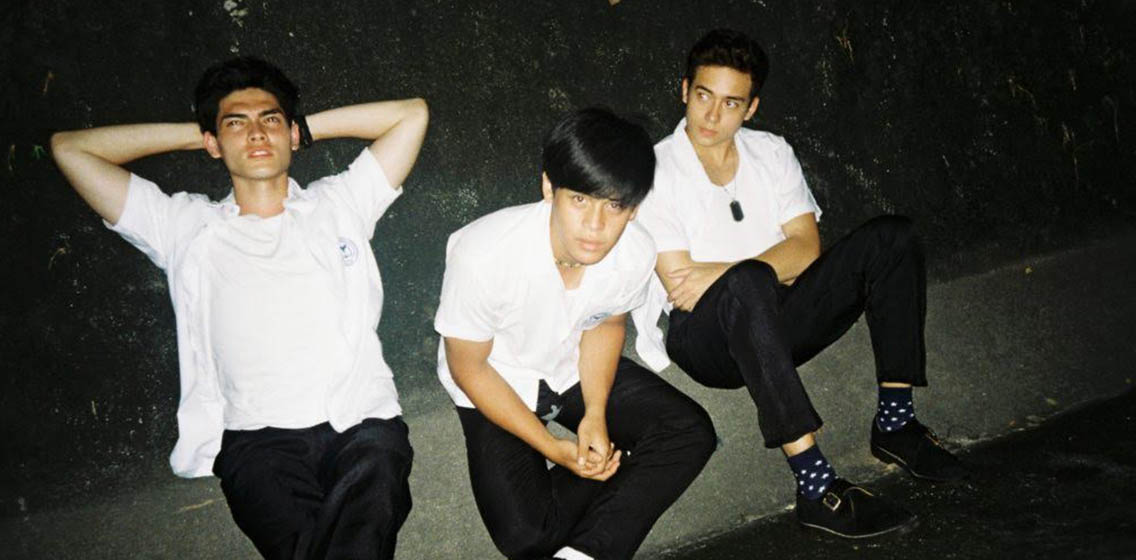Affinities in new horizons: On same-sex parenting
Ask a parent how raising a child is like and you won’t get any simple answers—it can be dreadful, fun, and a lot more than what the term “raising” offers. Despite the hardships, it’s a redeeming duty worthy until the end. Yet there is a particular type of parents that can be considered unsung in their vie to be accepted by others—same-sex parents who break away from the heterosexual norm of molding a family.
Amidst the traditional way of thinking that children ought to be raised by the nuclear type of family consisting of a mother and a father, a research on same-sex parenting by the American Psychological Association poses that there is a little difference in psychological aspects of growth in children of same-sex parents and heterosexual parents.This presents that stigmatizing same-sex parents for the possible psychological effects to their children is baseless and instills an adverse image.
And even in a conservative country such as the Philippines, there is also a good number of LGBT parents that stand in the shadows of the typical. Even more so around Dasmariñas—as we meet with a couple corresponding to share their experiences as same-sex parents in a society gradually accepting of their lifestyle.
Meeting the family
In a bustling neighborhood in the Dasmarinas City village of San Agustin live the small family of 51-year-old Heidi Manrique, 60-year-old Emilia Saulog, and their nine-year-old adopted son Mark Brent. Emilia was born in Cavite while Heidi is from Bicol. The couple make a living by collecting recyclables, doing laundry, and other minute trades that help that get by day-to-day—all to provide for their fourth-grader. Mark was adopted by Emilia and Heidi because of the financial struggle of his biological mother, Heidi’s niece.
Heidi and Emilia have been together for 26 years and their families know of their sexual identities from the ground up and don’t oppose on what their hearts call for. The couple describes their relationship as a bout of compromises. “Bigayan, pasensiyahan, pag hindi mahaba pasensya mo, wala,” shared Heidi.
“Kailangan mahaba talaga (ang pasensiya) kasi, lalo na iyan, nagkaka-edad, makulit na, nako, para akong may alagangbata. Maigi pa ang bata eh napapag sabihan mo eh iyan napipikon, ayaw magtanggap ng pagkakamaliniya,” Heidi sai jokingly said to her partner. They even admitted that Mark also somehow serves as the intermediary between the couple whenever they quarrel. But after some time, they’ve learned to compromise and depend on each other’s arms again and again. After all, that’s how they define their commitment after all.
Pursuing happiness
It brings genuine joy to the both of them to earn and provide for the family. They swear by the fact that happiness that doesn’t require extravagance. A simple feast of food and a small celebration from time to time has become their own way to reignite their love, despite many naysayers.
“Matatag kami, sinasabi nila kung anong ipapakain niya sa akin? Sabi ko eh wala naman kayong pakialam doon kasi ang katuwiran ko naman hindi sila ang sinasamahan ko kung hindi yung sino siya. Kung ang magulang ko nga hindi nag-hadlang sakanya, sino kaya sila? Basta ako kung sino` yung kasama ko iyun yung pinapahalagahan ko”, Heidi stated. “Papahalagahan kita, kaya pahalagahan mo ako.” Emilia furthered.
The lovers dispute each other to break up a lot of times already. In this regard, the couple also keeps stressing out meeting halfway is an essential means of remaining together. It’s the conditional giving that turns them to accept their flaws, swallow their pride, and finally forgive each other.
“Ayaw niya (Heidi) lang humiwalay sa akin” Emilia defended.
On a note to other same-sex couples in a family, the two said that they must find their own happiness by finding something that puts them on a same ground for developing a bond stronger than steel. Giving conciliation together ensures a lasting relationship that Emilia and Heidi can attest to.
“Hindi naman tatagal ng basta-basta yang dalawang yan eh.” Their neighbor laughingly testified in the middle of the conversation.
Parenting as an LGBT couple
In their experience as same-sex parents, there aren’t any particular major difficulties that arose in raising Mark so far, they recalled. Their only hope is their son’s health, for the fear of not being able to provide for him if he falls sick. However, the couple is happy about how they have people willing to support them in times of dire. These include their loving neighbor, families, and friends to fill the void of having close to nothing.
For them, they’ve always motivated their son to stay in school. Happily, so far, they’ve never gotten any reports that their son is getting bullied in school because of his parents’ sexuality. The same-sex couple also tells other parents and kids that they should not give flak to the child because of his parents, as this may affect him psychologically.
Mark serves as their inspiration for them to wake each day, being one of their greatest joys as a couple. They narrated how their son always shows strength in the daily household chores to prove that he is capable of being responsible.
Heidi also lectures his son about human sexuality early in his childhood. With this little effort, their son has learned to accept them for who they are at a young age. Mark is not ashamed of the sexuality of his parents (whom he calls Emilia “daddy” and Heidi “mama”) and is also not affected by the painful words cruel people spew out. Mark is strong for his age—Like mothers, like son.
***
There’s already proof that the phenomenon of being a same-sex parent has essentially no difference to that of being a heterosexual parent. Yet, there are still conservative sectors against same-sex parenting and what it bring sto children. Nonetheless, the silver lining to the constant oppositionis the unyielding belief for change that makes same-sex couples such as Emilia and Heidi bold and proud.
Stories of same-sex parents like Emilia and Heidi could inspire their situations as a favorable standard for this society. Their constant hustle to not fuel others’ negativity is already a way of life in their books. Acceptance, to them, is refuge for struggles endured in fighting for their ways.
“Laban lang nang laban.” Heidi concludes.




